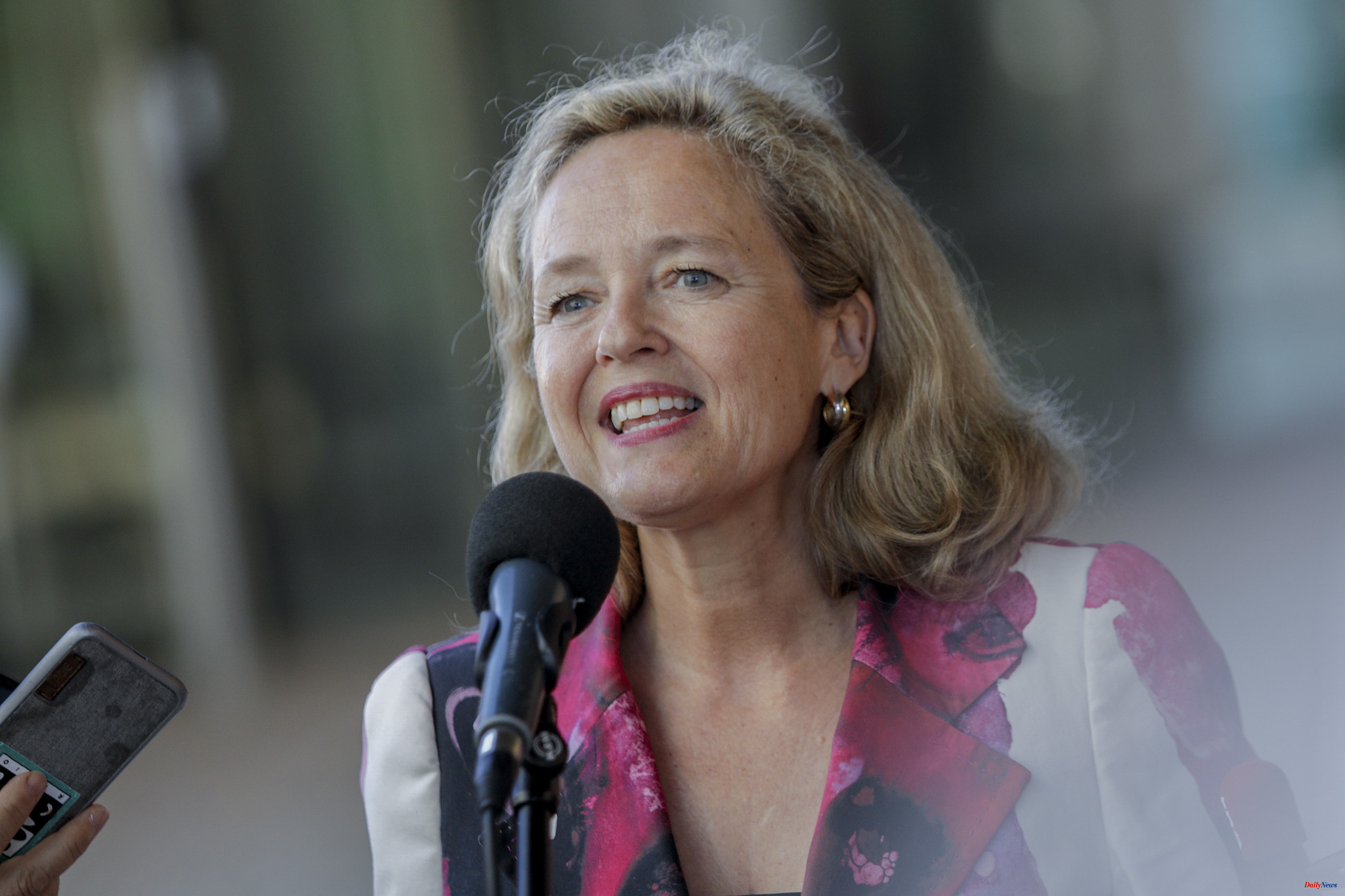Nadia Calviño is the top favorite and there is a consensus that everything points to her victory, but the race is not over. Next week, the finance ministers of the European Union meet in Santiago de Compostela for an informal Ecofin, as is tradition every six months. The Spanish Government hoped that one name would emerge from the meeting, a single candidacy, so that in the month of October the name of the next president of the institution, but the sources consulted in the institution and among continental diplomats suggest that the decision will probably have to wait a little longer.
The German Werner Hoyer leaves office on December 31 after 11 years and there are five official candidates for his position: the Spanish, the Danish vice president of the European Commission and head of Competition, Margrethe Vestager. Mario Draghi's former Economy Minister, Daniele Franco. And two members of the Bank, the Swede Thomas Östros and the Polish Teresa Czerwinska. All the names were already known, but yesterday the Belgian minister, Vincent Van Peteghem, who holds the temporary and rotating presidency of the Board of Governors of the Luxembourg-based institution, made it official that they have passed the internal evaluation.
"Today I have informed the EIB Governors about the candidates who have been evaluated by the Appointments Advisory Committee. In the coming period I will carry out informal consultations with my colleagues with a view to starting the formal procedure to appoint a new president, in accordance with the rules and procedures of the EIB. This will happen long before the current president, Werner Hoyer, leaves office," he summarized in a statement.
The decision must be made soon, but unlike other processes, such as that of the president of the Eurogroup, in which the Spanish woman was defeated, here not all votes are worth the same. There is a weighting for the weight of each country in the capital of the institution, so the position of the largest, especially Germany, France and Italy, is decisive. In Brussels, dozens of sources consulted in recent weeks agree overwhelmingly, something that is not common: the favorite is the Spanish one and its great and almost only rival is the Danish one, which has almost two decades of experience in the Commission. And everything will depend on Paris and Berlin.
The transalpine country, a formidable rival in this type of competition, starts with disadvantages. Franco does not have the European profile of the two outstanding ones. He is known and respected, a good technician, but nothing to do with it. In addition, his country will manage to revalidate his position on the Governing Council of the European Central Bank, replacing the outgoing Fabio Pannetta with Fabio Cipollone.
In recent days, the European press, from north to south and east to west, has agreed that Calviño has an advantage although he has three obstacles to overcome. On the one hand, satisfy the pronuclear demands of France, which wants to reverse the EIB's distant position in financing projects. On the other hand, the exchange of stickers that Berlin is asking for: its support in exchange for the presidency of the Single Banking Supervision Mechanism. The Spanish Margarita Delgado, from the Bank of Spain, was the favorite of the European Parliament and the best valued, but the chair also goes to the German Claudia Buch, who seems to have the sympathy of Lagarde, according to the MEPs, who believe they see a favored treatment towards the German woman.
The third problem is the 'excess' of Spanish names in the field. Calviño made it a priority to place more Spanish pieces all over the board. This has led to the current presence of Manuel Campa (who is rumored to be a possible replacement for the first vice president in the Council of Ministers) in the European Banking Authority; Fernando Restoy at the head of the Financial Stability Institute of the Bank for International Settlements. The Governor of the Bank of Spain, Pablo Hernández de Cos, now chairs the Basel Committee. And even the one who was Secretary of the Treasury under Calviño, Carlos San Basilio, is Executive Director of Corporate Strategy of the European Bank for Reconstruction and Development.
However, this week, the Financial Times, Politico and Les Echos have highlighted in in-depth articles that the Spanish woman should win the award, after consulting all kinds of diplomats and members of different governments. Because of her prestige ("For five years, she has shown that a social policy can be applied without emptying the public coffers"), because her colleagues at Ecofin, where she is one of the most veteran, will decide. Because she goes to forums like the G20 in India, where she is taking the opportunity to lobby. Because of the weighted vote and because even Vestager's image was affected just before the summer break by the controversial failed appointment of a North American professor as a Competition advisor. An election that France vetoed and that caused a new clash with Macron in person, who was personally in charge of cutting the process short.
Diplomatic sources indicate that Vestager let the Belgian president know that it did not seem appropriate for the decision to be adopted in Santiago de Compostela, in 'Calviño's house'. The initial idea was to put a specific item on the agenda, probably at breakfast on Saturday the 16th. But the EIB believes that the decision will be made later. In any case, the process has proven to be very fluid. No rule seems fixed, deadlines move, everyone evades responsibilities, no one dares to say if there is something obligatory or more or less fixed. And the decision of the steps remains in the hands of Belgium, surely the country most accustomed to improvising and patching up complicated situations in political life.
The Dane still hopes to convince Macron, after her group in the European Chamber, Renew, liberals like her, have supported her. She knows that all the odds point in another direction, but those around her say that she has many possibilities, and that is why this week she has requested a leave of absence without pay until the campaign concludes. "I wouldn't if there wasn't anything to scratch," she explains. She also trusts in her network of contacts, Nordic solidarity, in the skeptics of the East and that Germany can change its mind. Olaf Scholz, the chancellor, is a socialist, but the finance minister, Lindner, is also liberal and has completely different ideas from Spain, as seen in the debate on fiscal rules. Not to mention that our country is already the great 'client' of the institution. Calviño is the best on paper, but she was also the best when she wanted to preside over the Eurogroup and she was clearly defeated. And he was one of the best profiles to lead the IMF in 2019, and he had to settle two years later with the International Monetary and Financial Committee (IMFC), the body that advises the Board of Governors of the Fund. .












